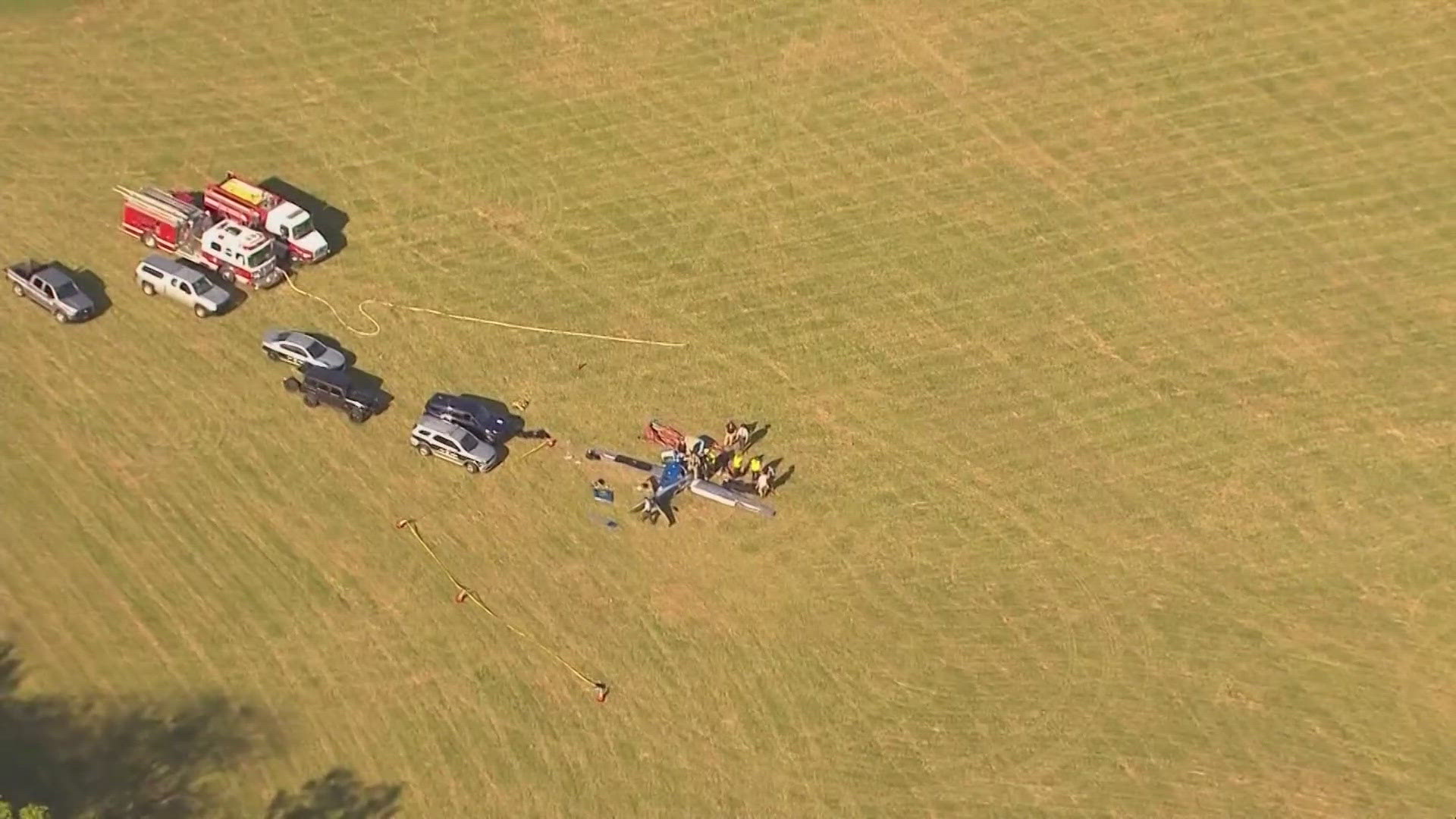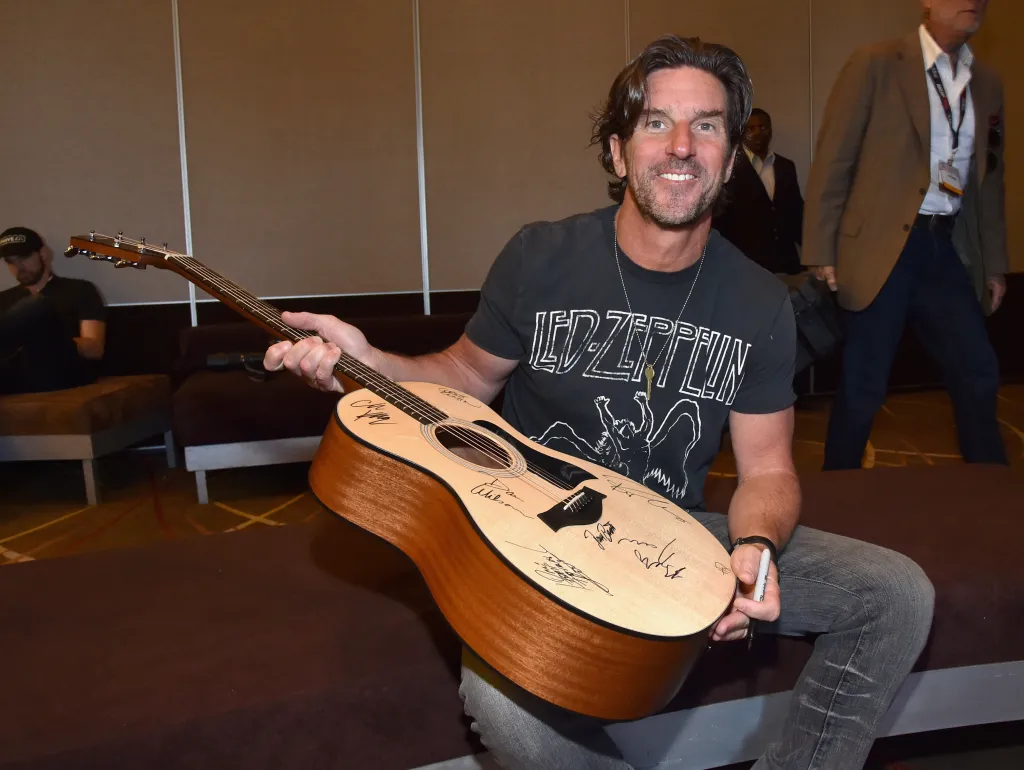NASHVILLE — Brett James never chased the spotlight, though he had the talent to command it. Born Brett James Cornelius in Oklahoma City, he walked away from medical school to try his luck on Music Row, aiming to create songs that hit hard and linger long after the last note.
He took a shot at country stardom, putting out a few singles of his own on Arista Nashville in the mid-1990s. The debut tried to break through but fizzled out, and Brett James soon found his place out of view: he became the steady hand shaping many of country’s most memorable tracks.
For thirty years, James quietly built a reputation as Nashville’s secret hitmaker, turning raw feeling into chart success—until disaster struck on Thursday afternoon, when the small plane he flew crashed into a North Carolina field. James was 57, and the suddenness of it fit the sorrow found in so many of his songs.
Authorities reported the plane crash around 2 p.m. outside Franklin, in Macon County, roughly 75 miles southwest of Asheville. James had departed from John C. Tune Airport, a private strip west of Nashville favoured by those who prefer to skip airline hassle.
He piloted a single-engine Beechcraft Bonanza, a classic plane that’s long been popular with hobby pilots. People nearby said they heard the plane’s engine start to sputter as it climbed to about 1,500 feet before sharply banking left and plunging into a hayfield.

Problem in the Fuel System
The collision sparked a blaze, scorching the ground for nearly 200 feet and leaving the wreckage almost unrecognizable. Two others died as well: Travis Hale, a 42-year-old mechanic from Hendersonville who often joined Brett James on flights, and Lena Voss, a 29-year-old music hopeful who joined after a friendly lunch in Nashville.
The National Transportation Safety Board responded quickly, with early talk suggesting a problem in the fuel system, such as a blockage or vapour lock. The flight recorder may offer more details. James, who had logged more than 500 hours flying, likely shouldn’t have taken off in such thick fog, but, as friends often said, he always chased the next horizon.
News tore through Nashville in minutes, spreading across studios and group chats and halting songwriting in its tracks. Carrie Underwood, who brought James’s “Jesus, Take the Wheel” to millions, marked her loss on Instagram with a black square.
“He gave me the wheel when I couldn’t handle it. Now God’s got it. Brett, you were family. Love and prayers to his wife, his children, and that spirit you couldn’t break.” That song—written with Hillary Lindsey and Gordie Sampson in a long, caffeine-fuelled session back in 2005—spent six weeks at the top. For Underwood, newly crowned as American Idol winner, it was a turning point and more than just another hit. It was a modern country anthem.
Dierks Bentley, who wrote “I Hold On” with James, posted, “Rest easy, mate. Top bloke. Fellow flyer. One of the best singer-songwriters in Nashville, a real legend. That song and knowing you changed everything for me.” Sara Evans, who recorded Brett James’s “Suds in the Bucket” among others, wrote, “Absolutely gutted to lose someone who wrote so many incredible songs with me.

Brett James Lived for Music
Praying for Brett James’s family. It’s just so sad.” Jay DeMarcus of Rascal Flatts, remembering late-night writing sessions for Chicago’s record, said, “Don’t even know what to say. So sad right now.
Brett James and I wrote tons together.” Kenny Chesney, whose hits “When the Sun Goes Down” and “Out Last Night” both owe plenty to James, sent this word: “He lit up the best days. Losing him is losing a brother.”
Brett James is survived by his ex-wife of 22 years, Laura, a former publicist, and their teenage son and daughter, both of whom were often seen around the Cornman Music offices on Music Row. The family made a statement through the Nashville Songwriters Association International, where James was a board member.
“Brett James lived for the stories songs can tell, the ones that bring healing and sometimes pain. He flies higher now, but the space he leaves can’t be filled.” Plans for a tribute at the Ryman Auditorium are already in motion. James entered the Nashville Songwriters Hall of Fame in 2020—a ceremony pushed back by the pandemic in honour of a career with 26 number ones and hundreds of major-label recordings.
His list of credits is staggering, almost like a cheat sheet for anyone hoping to become a legend. His Grammy for “Jesus, Take the Wheel” in 2007, paired with Carrie Underwood’s award for Best Country Female Vocal, underlined his place as a songwriting powerhouse. The single won Top Single of 2005 at the Academy of Country Music, Country Song of the Year at ASCAP in 2006, and again with NSAI the same year.

Grammy Winning Singer-Songwriter
Twice, ASCAP named him Country Songwriter of the Year (2006 and 2010). He earned more than 40 ASCAP awards and saw his work recorded by Faith Hill (“Breathe”), Tim McGraw (“My Little Girl”), Martina McBride (“Blessed”), and crossover tracks with Bon Jovi or Kelly Clarkson.
He helped Jessica Andrews hit number one with “Who I Am” in 2001 and found new audiences with Latin stars like Paulina Rubio. His production helped shape early Taylor Swift, Kip Moore, Danielle Bradbery, and others.
Over 18 years, he took on leadership at the CMA and served the Recording Academy as a trustee. “Brett James always pulled for the songwriters who didn’t have a voice,” shared NSAI’s Mark Ford. “Generous, kind, truly a joy. The loss isn’t just him—it’s the songs he never got to write. The ones that would have made us smile or cry for many years.”
Brett James’s death also recalls a long, tragic line of country artists whose lives ended in aviation disasters. Patsy Cline was barely thirty when her Piper Comanche crashed in Tennessee in 1963, the fog disorienting even experienced pilots. Jim Reeves, also gone in a Beechcraft near Nashville in 1964, couldn’t fight the storm.
Lynyrd Skynyrd lost key members in 1977 when their plane went down in Mississippi. Eight in Reba McEntire’s touring band died near San Diego in 1991 after running out of fuel. Others slipped away in similar heartbreak: Buddy Holly in 1959, Otis Redding in icy 1967, Jim Croce in a foggy 1973. “It’s the risk of flying private,” Bentley said late Thursday, “You want more time, you skip the busy airports, and sometimes there’s a price.”
James accepted that risk. He often flew that Bonanza for peace of mind, trading Nashville’s pressure for the open skies of the Carolinas. But his death reminds Nashville that even the songwriters, the ones who build others’ dreams, face the same dangers.
Carrie Underwood’s voice once gave life to his lyrics: “Something more than my broken heart / I can’t face on my own.” Nashville mourns with her. Still, those songs Brett James gave the world aren’t going anywhere.














